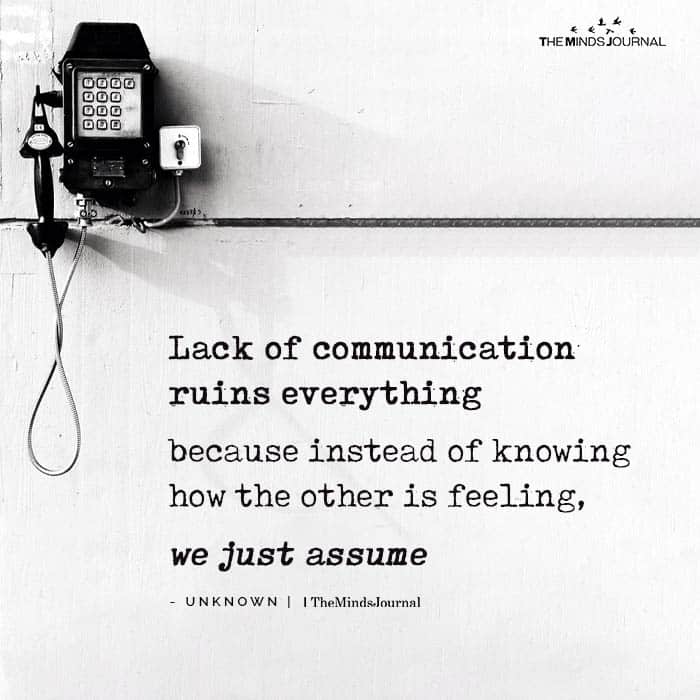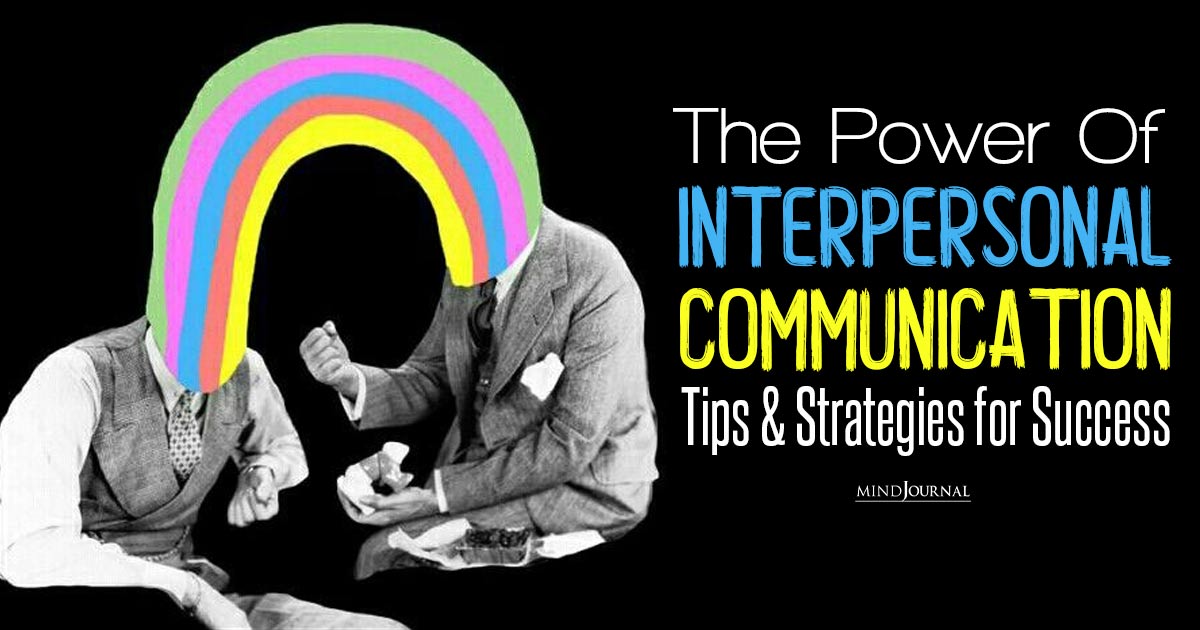Do you struggle with communicating effectively with others? Whether it’s in your personal or professional life, mastering the art of interpersonal communication can be a game-changer. Let’s explore the interpersonal communication definition and tips and strategies to improve our communication skills.
Effective communication is the cornerstone of any healthy relationship, whether personal or professional. But exactly what is interpersonal communication?
Interpersonal communication helps us exchange information and connect with others. It is an essential skill that helps us build trust, and strengthen bonds.
Today we are going to take a deep dive into understanding interpersonal communication definition and its importance in our daily lives to enhance our relationships.
What is interpersonal communication?
Interpersonal communication definition: Interpersonal communication refers to face-to-face interactions between two or more people. It involves the exchange of verbal and nonverbal messages that create shared meaning between the communicators.
Interpersonal communication refers to the process of exchanging thoughts, information, ideas, and emotions between two or more people. It is a two-way process that involves both sending and receiving messages. Interpersonal communication can occur through various channels
It encompasses verbal, non-verbal and written communication, encompassing facial expressions, body language, tone of voice, and more. It is a dynamic process that enables us to forge meaningful connections, build relationships, and navigate the intricate web of human interactions.
Related: 8 People Skills You Need To Succeed In Your Work and Relationships
Interpersonal communication aims at establishing a mutual understanding between individuals through interpreting each others’ behaviors, thoughts, and feelings.

Why is interpersonal communication important?
Now that we know what is interpersonal communication, let’s focus on why it is important.
Interpersonal communication serves as the cornerstone of successful interactions and lays the groundwork for healthy relationships. Whether it’s a casual conversation with a friend, a job interview, or a crucial negotiation, the ability to communicate effectively can determine the outcome of any interaction.
It facilitates understanding, empathy, and collaboration, fostering harmonious connections that fuel personal growth and professional success.
Interpersonal communication behavior is important because it helps us build relationships with others. It allows us to connect with people on a deeper level, understand their perspectives, and express our own thoughts and feelings.
Effective interpersonal communication also helps us resolve conflicts, negotiate agreements, and collaborate with others.
Interpersonal communication is essential in both personal and professional relationships. In personal relationships, effective communication helps us build trust, express our emotions, and strengthen our bonds with loved ones.
In professional relationships, interpersonal communication is crucial for teamwork, leadership, and achieving career or business goals.
Forms of interpersonal communication
There are many forms that interpersonal communication can take, including:
1. Verbal communication
Verbal communication refers to communication using spoken or written words. It is the most common form of interpersonal communication.
When we verbally communicate with others, we use words, sentences, and language to convey our thoughts, ideas, and feelings. Both the content and style of our verbal communication can shape its effectiveness. This is also important for intrapersonal communication, which is communication with oneself.
2. Nonverbal communication
Nonverbal communication refers to communicating without words through facial expressions, gestures, body language, eye contact, and vocal cues like tone of voice, volume, and rate of speech.
Most of the meaning communicated in an interaction comes through nonverbal channels. Part of being an effective communicator involves being aware of and able to interpret others’ nonverbal cues.
3. Para-linguistic cues
Para-linguistic cues are nonverbal aspects of verbal communication like tone of voice, pitch, volume, and rate. They can convey a large part of the meaning of a verbal message.
Listening attentively to para-linguistic cues can improve your understanding of what someone is trying to communicate.
Related: Fexting In A Relationship: Navigating Conflict In Digital Conversations
4. Written communication
Written communication includes emails, letters, texts, memos, and other messages that people write and exchange.
While lacking nonverbal cues, written communication allows people time to deliberate over exact word choice and properly craft the meaning they intend to convey.
5. Visual communication
Visual communication includes images, photos, videos, and other visual media that people use to convey meaning to each other.
Visuals can often communicate ideas faster and with more emotional impact than words alone, as part of interpersonal communication definition.

Characteristics of effective interpersonal communication
To truly understand interpersonal communication definition and to make it work effectively, we must explore to certain key characteristics that it possesses –
1. Clarity
Effective interpersonal communication behavior ensures that messages are concise, precise, and unambiguous. Lack of clarity makes it difficult for listeners to properly interpret meaning as per interpersonal communication definition.
2. Accuracy
Accuracy means communicating facts truthfully and precisely. Being inaccurate can undermine trust in communication and damage relationships.
3. Appropriateness
Appropriate communication matches the circumstances, medium, and listeners. It takes into account cultural norms and what is considered respectful and polite.
4. Honesty and openness
Honest and open communication involves sharing one’s authentic thoughts and feelings in a truthful way. It builds trust and strengthens interpersonal relationships. Here our intrapersonal communication also plays an important role.
5. Reciprocity and mutual respect
Partners in communication need to listen to each other, be receptive to different perspectives, and treat each other with dignity for true understanding per interpersonal communication definition.
Related: How Communication Imagery Can Cement Your Relationship
6. Sensitivity to context
Considering the social and cultural contexts of communication allows for a better interpretation of attitudes, behaviors and communication.
7. Immediacy and presence
Responding immediately when appropriate shows care and concern. And being fully present and attentive signals that the other person is valued.
How to improve interpersonal communication
Once you have learned what is interpersonal communication, you can learn to improve it. Here are a few practices that can help you enhance your interpersonal communication abilities –
1. Active listening
One of the most important aspects of interpersonal communication behavior is active listening. Active listening involves paying attention to the speaker, understanding their message, and providing feedback.
To be an active listener, you should maintain eye contact, nod your head, and ask questions for clarification.
2. Empathy
Empathy is the ability to understand and share the feelings of others. It is an important aspect of interpersonal communication because it helps us connect with others on an emotional level.
To practice empathy, you should focus on your intrapersonal communication and try to put yourself in the other person’s shoes, understand their perspective, and validate their feelings.
3. Clarity and conciseness
Clear and concise communication is essential for effective interpersonal communication. To communicate clearly and concisely, you should use simple language, avoid jargon, and organize your thoughts in a logical manner.
4. Nonverbal communication
Nonverbal communication plays a significant role in interpersonal communication. To improve your nonverbal communication, you should maintain eye contact, use appropriate facial expressions, and control your body language.
5. Respect
Respect is crucial for effective interpersonal communication skills. You should always be respectful of others’ opinions, perspectives, and feelings. Avoid interrupting, judging, or belittling others.
Related: 6 Ways To Improve Communication In A Relationship
6. Feedback
Feedback is essential for improving interpersonal communication. You should be open to receiving feedback from others and provide constructive feedback to others.
Feedback helps us identify our strengths and weaknesses and improve our communication skills. It is also important for our intrapersonal communication.
7. Mindfulness
Mindfulness is a state of awareness and presence in the moment. Practicing mindfulness can help improve your interpersonal communication skills by helping you stay focused, calm, and present in the conversation.
Here are some more tips that you can use to boost your interpersonal communication behavior with others –
- Use open-ended questions to clarify meaning
- Offer constructive feedback in a calm and respectful manner
- Respond thoughtfully instead of reacting impulsively
- Express your thoughts and feelings openly but appropriately
- Build rapport by finding common ground and showing empathy
- Use assertive communication to clearly state your needs and limits
- Apologize sincerely when you have hurt or offended someone
- Accept responsibility for miscommunications and work to resolve conflicts
- Have an attitude of curiosity and desire to understand others

Common barriers to effective communication and how to overcome them
There are several common barriers to effective communication that can hinder our ability to connect with others and convey our message clearly. Here are some of the most common barriers to communication and how to overcome them:
1. Language barriers
Language barriers can occur when people speak different languages or have different levels of fluency in the same language.
To overcome language barriers, you can use translation tools or services, simplify your language, and use visual aids or gestures to convey your message.
2. Cultural barriers
Cultural barriers can occur when people from different cultures have different values, beliefs, and communication styles.
To overcome cultural barriers, you can learn about other cultures, be respectful of their customs and traditions, and try to adapt your communication style to their preferences.
3. Physical barriers
Physical barriers can occur when people are separated by distance, noise, or other environmental factors.
To overcome physical barriers, you can use technology, such as video conferencing or messaging apps, speak loudly and clearly, and choose a quiet and private location for your conversation.
Related: The 6 Commandments Of Vulnerable Communication
4. Emotional barriers
Emotional barriers can occur when people have different emotional states, such as stress, anxiety, or anger.
To overcome emotional barriers, you can practice empathy, validate their feelings, and avoid judgment or criticism.
5. Perception barriers
Perception barriers can occur when people have different interpretations or assumptions about the same message.
To overcome perception barriers, you can clarify your message, ask questions to confirm their understanding, and avoid making assumptions about their perspective.
6. Attitude barriers
Attitude barriers can occur when people have negative attitudes or biases towards each other.
To overcome attitude barriers, you can be respectful and open-minded, avoid using offensive language or gestures, and focus on finding common ground.
7. Information overload
As per interpersonal communication definition, information overload can occur when people are overwhelmed by too much information or data.
To overcome information overload, you can prioritize your message, use visuals or summaries to highlight key points, and avoid using too much technical jargon.
By being aware of these common barriers to effective communication and taking steps to overcome them, you can enhance your communication skills and build stronger relationships with others.
Takeaway
Interpersonal communication is an art that can be mastered with practice, patience, and a genuine desire to connect with others. By understanding interpersonal communication definition and importance, recognizing its key elements, and honing our skills, we can unlock the power of connection in both our personal and professional lives.
It is an essential skill that helps us build relationships, communicate effectively, and achieve our goals. By improving our interpersonal communication skills, we can enhance our relationships and achieve greater success in life.
To improve your interpersonal communication skills, practice active listening, empathy, clarity and conciseness, nonverbal communication, respect, feedback, and mindfulness.
By incorporating these strategies into your daily life, you can become a better communicator and connect with others on a deeper level.
So, let us embark on this transformative journey, embracing the potential of effective interpersonal communication to enrich our relationships, amplify our influence, and create a world where understanding and empathy thrive.
Related: 5 Hacks To Easily Communicate As An Introvert










Leave a Reply